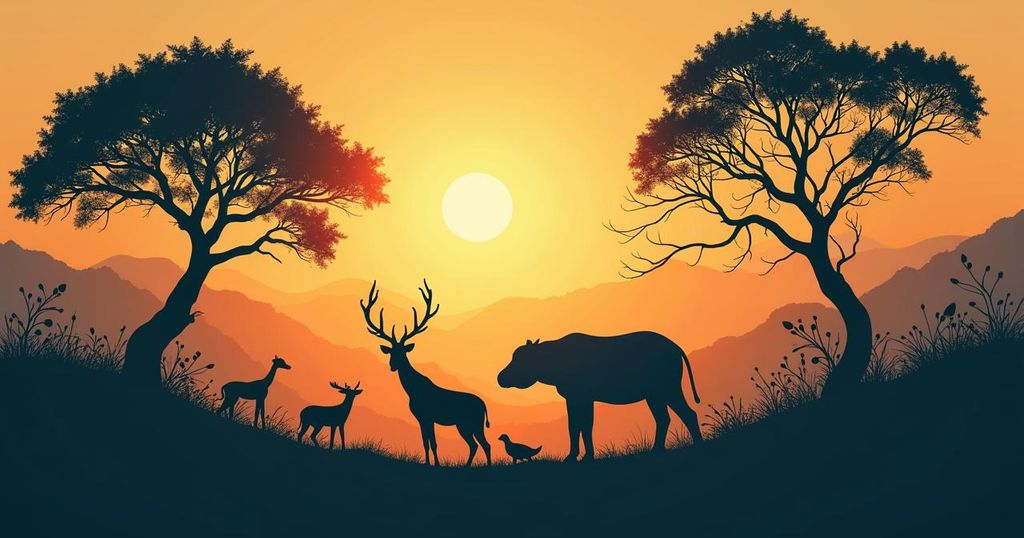WWF Warns of Critical Wildlife Declines and Urgent Need for Global Action
According to the latest Living Planet Report by WWF, global wildlife populations have experienced an average decline of 73% in the past 50 years due to human activities. This decline poses serious threats to ecosystems, with many nearing critical tipping points. While some conservation efforts have shown success, the overall trend of habitat destruction requires urgent collective action from global leaders to safeguard our natural world.
The World Wide Fund for Nature (WWF) has issued a dire warning about the escalating decline of global wildlife, stating that we are approaching critical tipping points. A recent analysis, the Living Planet Report, illustrates that wildlife populations have drastically decreased by an average of 73% over the past 50 years, largely due to human activities. This report highlights alarming declines across various species, including elephants in tropical regions and hawksbill turtles near the Great Barrier Reef. Tanya Steele, head of WWF UK, emphasized that the obliteration of natural habitats is bringing many ecosystems to a precarious state, with areas such as the Amazon rainforest and coral reefs nearing catastrophic thresholds. The Living Planet Index, which tracks the status of more than 5,000 wildlife populations, indicates that pollution and threats from mining have led to a 60% decline in the Amazon pink river dolphin population. Although there are success stories, such as the gradual increase of mountain gorillas in East Africa, the WWF contends that these instances are insufficient in the face of widespread habitat destruction. Professor Tom Oliver from the University of Reading commented that the convergence of various datasets paints a distressing picture of global biodiversity deterioration. The primary threats to wildlife identified in the report include habitat degradation, overexploitation, invasive species, disease, climate change, and pollution. Mike Barrett, WWF’s chief scientific adviser, noted that human practices, particularly related to food production, are significantly contributing to habitat loss. Furthermore, the report warns that the ongoing loss of nature, combined with climate change, could lead to irreversible tipping points, potentially culminating in the collapse of vital ecosystems such as the Amazon rainforest, which plays a crucial role in carbon sequestration.
The alarming decline in global wildlife populations reflects a broader ecological crisis driven by human endeavors. The Living Planet Report serves as a comprehensive assessment of the well-being of various species and their habitats. Within a 50-year span, drastic reductions in wildlife numbers signal not only a loss of biodiversity but also the threat posed to ecosystems that uphold planetary health and stability. As biodiversity diminishes, the risks of ecosystem collapse increase, underscoring the urgency for collective action to protect and restore natural environments. The implications of these changes resonate with global efforts to mitigate climate change and promote sustainability, particularly as leaders prepare for significant environmental discussions, such as those at the United Nations Biodiversity Conference.
The alarming findings presented in the Living Planet Report serve as a clarion call for immediate action to protect and restore global wildlife. The recognition of habitat loss as the predominant threat to biodiversity, compounded by alarming trends in overexploitation and pollution, necessitates a concerted effort from governments and businesses alike. The urgency of this situation cannot be overstated as it poses fundamental threats to humanity, urging stakeholders to embrace their responsibilities in preserving the planet’s natural heritage for future generations.
Original Source: www.bbc.com




Post Comment